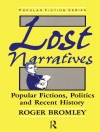Essays on the many key aspects of medieval literature, reflecting the significant impact of Professor Derek Brewer.
Derek Brewer (1923-2008) was one of the most influential medievalists of the twentieth century, first through his own publications and teaching, and later as the founder of his own academic publishing firm. His working life of some sixty years, from the late 1940s to the 2000s, saw enormous advances in the study of Chaucer and of Arthurian romance, and of medieval literature more generally. He was in the forefront of such changes, and his understandings of Chaucer and of Malory remain at the core of the modern critical mainstream.
Essays in this collection take their starting point from his ideas and interests, before offering their own fresh thinking in those key areas of medieval studies in which he pioneered innovations which remain central: Chaucer’s knight and knightly virtues; class-distinction; narrators and narrative time; lovers and loving in medieval romance; ideals of feminine beauty; love, friendship and masculinities; medieval laughter; symbolic stories, the nature of romance, and the ends of storytelling; the wholeness of Malory’s
Morte Darthur; modern study of the medieval material book; Chaucer’s poetic language and modern dictionaries; and Chaucerian afterlives. This collection builds towards an intellectual profile of a modern medievalist, cumulatively registering how the potential of Derek Brewer’s work is being reinterpreted and is renewing itself now and into the future of medieval studies.
Charlotte Brewer is Professor of English Language and Literature at Oxford University and a Fellow of Hertford College, Oxford; Barry Windeatt is Professor of English in the University of Cambridge and a Fellow of Emmanuel College, Cambridge.
Contributors: Elizabeth Archibald, Charlotte Brewer, Mary Carruthers, Christopher Cannon, Helen Cooper, A.S.G. Edwards, Jill Mann, Alastair Minnis, Derek Pearsall, Corinne Saunders, James Simpson, A.C. Spearing, Jacqueline Tasioulas, Robert Yeager, Barry Windeatt.
Tabla de materias
Introduction: A Modern Medievalist’s Career
Derek Brewer: Chaucerian Studies 1953-1978 – Derek Pearsall
Brewer’s Chaucer and the Knightly Virtues – Alastair J Minnis
Class Distinction and the French of England – Christopher Cannon
Time in
Troilus and Criseyde – A C Spearing ***
Virtue, Intention and the Mind’s Eye in Chaucer’s
Troilus and Criseyde – Mary Carruthers
Falling in Love in the Middle Ages – Jill Mann
The Idea of Feminine Beauty in
Troilus and Criseyde, or Criseyde’s Eyebrow – Jacqueline Tasioulas
‘Greater Love hath no Man’: Friendship in Medieval English Romance – Corinne Saunders
Gowerian Laughter – Robert F. Yeager
Derek Brewer’s Romance – James Simpson
Malory and Late Medieval Arthurian Cycles – Elizabeth Archibald
The Ends of Storytelling – Helen Cooper
Manuscripts, Facsimiles and Approaches to Editing – A S G Edwards
Words and Dictionaries:
OED,
MED and Chaucer – Charlotte Brewer
Afterlives: The Fabulous History of Venus – Barry A Windeatt
Afterword – Eric G. Stanley
Bibliography
Sobre el autor
James Simpson teaches English at Harvard University. He publishes on a wide range of topics in on late medieval and early modern Western European Literature.












